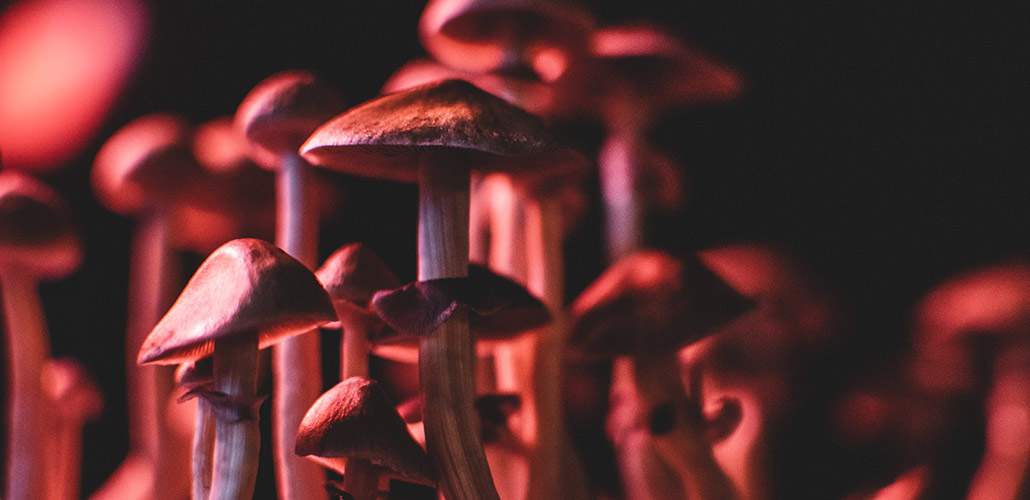
Psilocybin for Treating Depression: Understanding Its Use and Risks
Psilocybin or "magic mushrooms" have received increased attention as a potential treatment for depression, but it's important to understand the risks and research.

Psilocybin or "magic mushrooms" have received increased attention as a potential treatment for depression, but it's important to understand the risks and research.
"All in all, the preliminary research that exists on the usefulness of psilocybin for treating depression seems promising, but is very limited."
Recently, psychedelic substances have received more and more attention for their potential to treat mental illness, including depression. One of the most frequently mentioned of these substances is psilocybin – the active ingredient in magic mushrooms or “shrooms”.
So why do some people, including researchers, think this substance – often viewed as a recreational drug – might be suitable for treating depression? Although the process is not fully understood, scientists believe that psilocybin binds to specific serotonin receptors. Serotonin is a neurotransmitter, which is a chemical that transmits messages between nerve cells in our body and brain. One of serotonin’s functions is to regulate mood. Most antidepressants work by increasing the amount of serotonin produced in our brains. Because psilocybin also acts on serotonin, some hope it may have similar antidepressant effects. (1)
Hallucinogens, often referred to as “psychedelic drugs”, are psychoactive substances that, when ingested, typically cause changes in sensory perception (sight, hearing, taste, touch, and smell) and other significant changes in mood, thought, and consciousness. When taken at high doses, they may cause a person to perceive things that aren’t really there, otherwise known as hallucinations.
Hallucinogens can be found in nature or synthesized in a lab, and the specific effects of different hallucinogenic substances can vary widely. Some common hallucinogens include LSD, mescaline, DMT, and psilocybin.
Common psychological/cognitive effects experienced acutely during psilocybin use include distortions in the perception of the passage of time (especially the feeling that time has slowed), feelings of joy and euphoria, unusual and introspective thinking, and profound mystical or spiritual experiences. In addition, psilocybin can cause a variety of physical side effects, including headaches, drowsiness, increased heart rate, pupil dilation, and lack of coordination.
Magic mushrooms are often taken with the aim of experiencing the above psychological/cognitive effects, but can cause additional unpleasant effects, colloquially referred to as a “bad trip”. These effects may include:
It is essential to be fully aware of the risks and potential harms associated with psilocybin use in order to make an informed decision about whether to consider incorporating it into your treatment and how to do so safely.
In a 2016 survey of nearly two thousand people who reported previously experiencing negative effects when taking psilocybin, 2.6% of those surveyed said they acted aggressively or violently, and 2.7% said they sought medical help.(2) Five of the participants with self-reported pre-existing anxiety, depression or suicidal thoughts attempted suicide while on the drug during their worst bad trip.
The use of hallucinogens is also associated with a condition called Hallucinogen Persisting Perception Disorder (HPPD). Although considered rare (it occurs in roughly 4.0% to 4.5% of people with a history of hallucinogen use), HPPD can cause people to experience ongoing changes in perception (sometimes referred to as “flashbacks”) for weeks or months after taking psilocybin.(3)
Given the risks, if you are considering using psilocybin, it’s important to do so in a safe environment and under supportive conditions, like under the supervision of a trained mental health professional, especially for those who are already struggling with their mental health.
Research on the potential therapeutic effects of psilocybin is limited but growing. While there was some research interest on the topic in the 1950s, this abruptly stopped when hallucinogens were outlawed in the 1960s, and interest has only recently begun to resurge.
Although these preliminary studies seem promising, they were limited by very small sample sizes and lack of long-term follow up. Furthermore, psilocybin has been used in research only under very specific conditions, so we do not know how it affects people outside of these circumstances.
Given these limitations, further careful study is required before any definitive conclusions can be drawn or recommendations given regarding psilocybin’s use in treating depression.
Outside of a few specific cities and regions, consuming psilocybin to treat depression without the supervision of a trained professional is not legal, has not been researched, and is not recommended due to associated risks and the potential for harm.
All in all, the preliminary research that exists on the usefulness of psilocybin for treating depression seems promising, but is very limited.
Given the limits to current research, it is important to remain focused on the facts instead of getting swept up in media sensationalism. Until further evidence emerges on the topic, it is best to proceed with caution before trying psilocybin to treat depression.
If you are currently struggling with depression, talk therapy and traditional antidepressant medication are the first line of treatment you should seek. Their effectiveness has been supported by vast amounts of research, and their use is much less risky.
In addition to professional support, there are a number of self-care strategies you can use to help manage your depression, such as staying physically active and learning to effectively manage stress. See our Practical Tips page to learn about additional healthy coping strategies.
References:
Too many men suffer in silence. Become a peer supporter for the men in your life.
In this four-part course (15–20 min each), you’ll learn what effective peer support looks like, how to show up for others, and how to stay grounded while doing so.